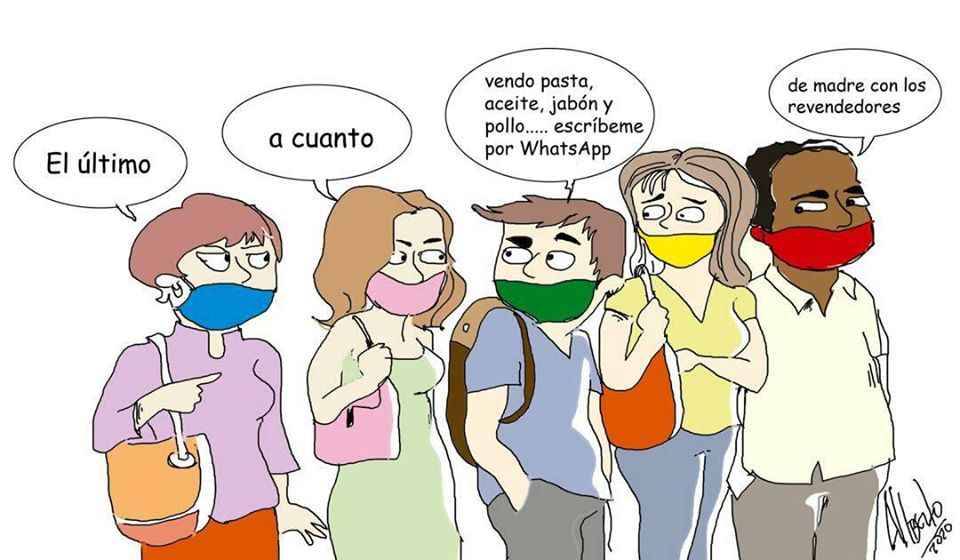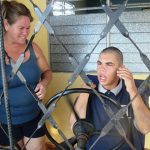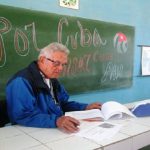For many years they were the owners of the queues and the first to hoard and then resell the products, initially at double their cost and over time, they multiplied the rates by up to ten and more.
They were the sovereigns, almost absolute, of the Todo X 1, those stores and departments dedicated to commercialize very cheap, useful and beautiful merchandise, highly demanded by the population.
They promoted their merchandise out loud and sold on portals, in front of the commercial units themselves or within walking distance of these, but also in the streets, neighborhoods and in some houses.
They knew the time of the price reductions before the majority and they organized themselves in a kind of network that operated in all the places where these sales would take place, hence they absorbed as many things as possible, and as we popularly say, “in the face of the Cuban”.
Actually, they turned that activity into a job that they were perfecting, to such an extent that they involved many other people who directly or indirectly promoted this phenomenon that became daily throughout the Island.
And so much so, that they became empowered and grew like bad grass in a spring that seemed to have no end, hence, as President Díaz-Canel himself said: “They acted with too much impunity and the problem has increased”.
But as the saying goes, “There is no evil that lasts a hundred years and no body that resists it”.
The Government takes action in the matter with total seriousness and starts up from this August 2 an operation that puts an end to that army, which far from producing and contributing to society, generates disgust and deepens scarcity.
I think that, in addition to warning and acting in accordance with the law, because illegal economic activity is a crime contemplated in the Constitution, it is essential to introduce social workers and other actors in society in the eradication of evil to personalize the action with each individual who has been involved, even for more than two decades, in what they considered until now, their work or way of survival.
Reorienting, proposing study, work or training to these hoarders and resellers is essential, if you really want to root out the evil at a very complex economic and financial moment for the country.
If you investigate deeply under the epidermis of the matter, you will discover, with all certainty, that in this world a very diverse group floats, from people with school frustration, single mothers, young people who come from dysfunctional families, alcoholics…, but also professionals who waste their potential in what has become the most profitable business: reselling.
The causes that led these individuals to position themselves in that link in the food chain of “save yourself who can” can not only be attributed to deficiencies, to the impact of the increasingly harsh blockade, (and for the record, it is not a tale of fairies), or lack of control and lack of demand.
There is a moral and ethical background closely linked to the family and social sphere that Cuban sociologists, psychologists, economists, statesmen, and politicians analyze with increasing attention.
My colleague and friend, the journalist for Radio Rebelde, Andrés Machado Conte, often reminds me that Cuba is an atypical country and it certainly is, above all, because we were born and grew up condemned and stigmatized by the most powerful Empire on Earth.
The figures of the reseller and hoarder are the result of a chain of events associated with our history of the last three decades, and today they are in the target of the people because their actions have nothing to do with solidarity, nobility and love to the neighbor, emblems that in addition to the winds and the times prevail as the clearest example of the beauty of Cuban identity.
“Men can build bridges more easily than they can lift souls.” Martí said it and in that idea is the challenge that we all have before us to build in today’s Cuba, the country we want and need.





